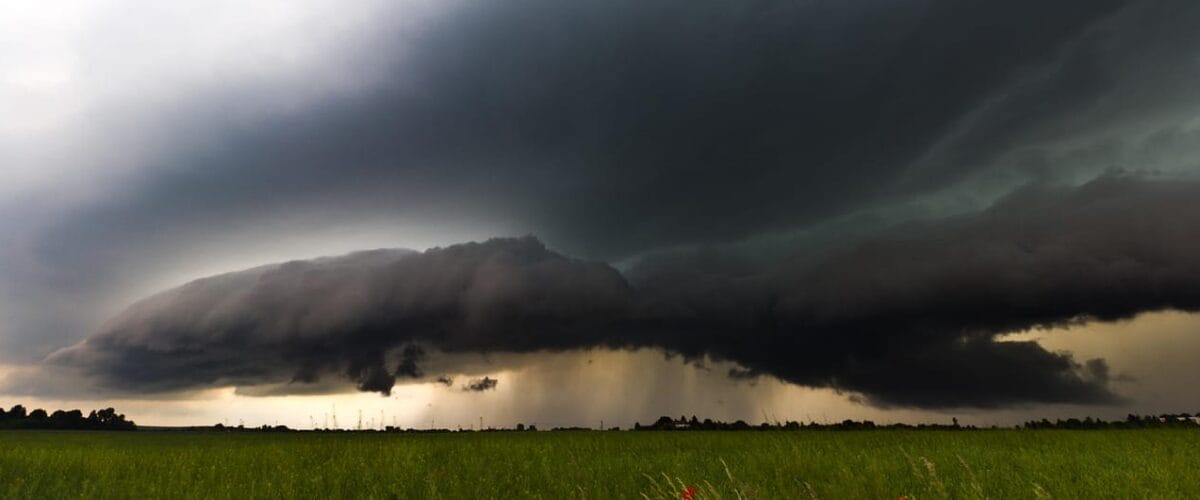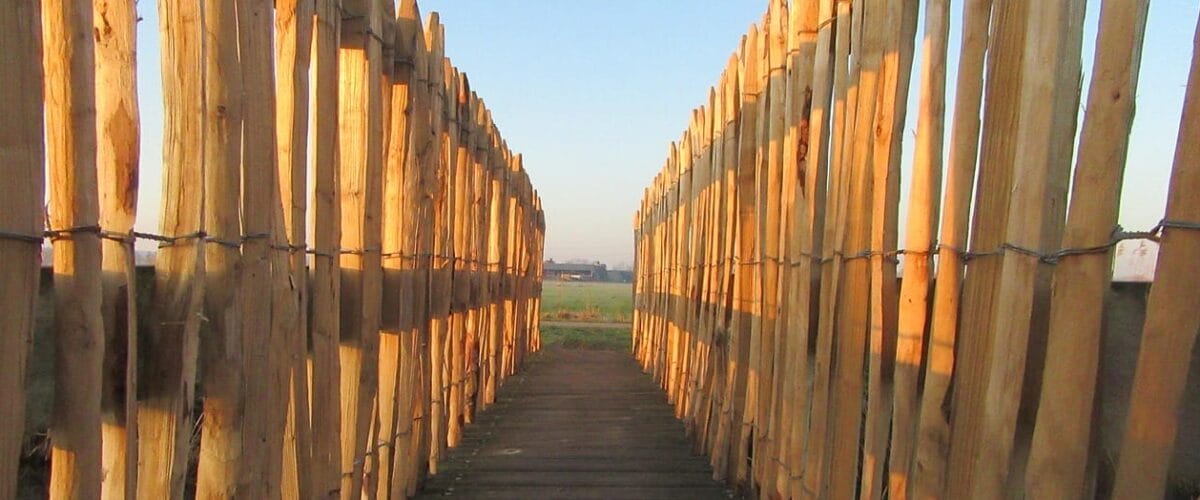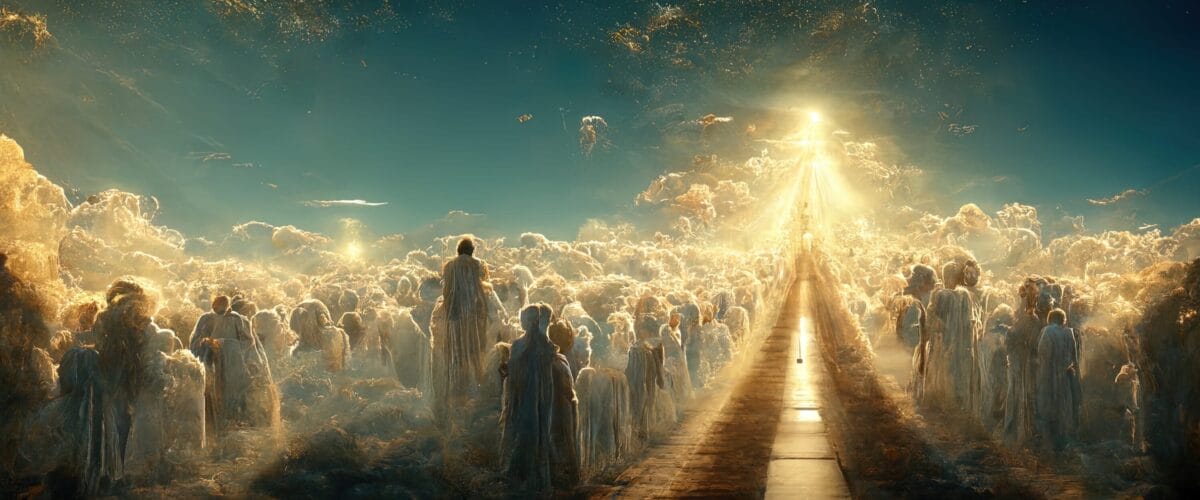For the past few weeks, I’ve ended the sermons with scripture verses and let them speak for themselves. Last week, I did so with our entire main passage, and the week before that I did so with Psalm 91. That psalm speaks well for itself, but it’s such a full passage that I thought I’d revisit it today. Even though we’re going to reread it in its entirety, I’m not going to dive deep into it–I could start a new series with it–but instead, we’re going to look at one particular element of it.
If I were going to start a new series on just this chapter, I would probably do so by looking at seven promises that are in this psalm. What are those seven promises?
- “I will rescue him…” (deliver, cause to escape)
- “I will protect him…” (set him on a high place)
- “I will answer him…” (respond to, speak)
- “I will be with him in trouble…” (in afflictions, in distress)
- “and honor him…” (to make rich, strong, heavy with honor)
- “With long life will I satisfy him…” (to have abundance in the journey)
- “and show him my salvation.” (let him see my deliverance and victory)
Today, I’m just going to delve into one of those promises. The promise of protection.
Psalm 91
1 Whoever dwells in the shelter of the Most High
will rest in the shadow of the Almighty.
2 I will say of the Lord, “He is my refuge and my fortress,
my God, in whom I trust.”
3 Surely he will save you
from the fowler’s snare
and from the deadly pestilence.
4 He will cover you with his feathers,
and under his wings you will find refuge;
His faithfulness will be your shield and rampart.
5 You will not fear the terror of night,
nor the arrow that flies by day,
6 nor the pestilence that stalks in the darkness,
nor the plague that destroys at midday.
7 A thousand may fall at your side,
ten thousand at your right hand,
but it will not come near you.
8 You will only observe with your eyes
and see the punishment of the wicked.
9 If you say, “The Lord is my refuge,”
and you make the Most High your dwelling,
10 no harm will overtake you,
no disaster will come near your tent.
11 For he will command his angels concerning you
to guard you in all your ways;
12 they will lift you up in their hands,
so that you will not strike your foot against a stone.
13 You will tread on the lion and the cobra;
you will trample the great lion and the serpent.
14 “Because he loves me,” says the Lord, “I will rescue him;
I will protect him, for he acknowledges my name.
15 He will call on me, and I will answer him;
I will be with him in trouble,
I will deliver him and honor him.
16 With long life I will satisfy him
and show him my salvation.”
That’s a rather lengthy passage, and like I said, I could dissect it if I wanted to, but instead, what do you notice about the psalm as a whole? God’s promise of protection. His protection has a caveat or a disclaimer. As you read this, you’ll notice that His protection over us is in accordance with our relationship with Him.
I want to make another statement before I get too far. We know that tragedy hits both believers and non-believers. If you remember the story of the Pennsylvania flight on September 11, Todd Beamer who was famous for having attempted to take over the hijackers on flight 93, you’ll remember his famous words, “Let’s Roll.”
Todd Beamer was a Christian. He was a graduate of Wheaton Christian High School and Wheaton College, the alma mater of Billy Graham.
Using an Airfone, attached to the back of a headrest on a seat, Beamer simply dialed 0 and was connected to Lisa Jefferson, a supervisor at the time at the Verizon Airfone Call Center in west suburban Oak Brook, Ill.
In 2006, Jefferson and former WBBM anchor Felicia Middlebrooks wrote a book about that day, Called. Jefferson wrote about how Todd Beamer “sounded so tranquil it made me begin to doubt the authenticity and urgency of the call.”
See, he too, had a calm assurance literally in the midst of everything that was going on around him.
Sept. 11 is a perfect example of how sometimes tragedy strikes the believer as well as the unbeliever. This Psalm, and other psalms like it are not a blanket statement for all believers in every situation at all times. As we just finished the two books of Peter, we know that Peter and his audience underwent hardships and persecution. I mentioned before how deadly fires, earthquakes, and tornadoes will hit an entire community, and homes of Christians–sometimes will not be hit, and other times, will be consumed in the disaster as much as anyone else.
I’m sure if we go back to the flood of ‘72, you’ll know Christians who were affected by the tragedy and others who were not.
And I think that God has reasons for letting those things happen, and I can’t answer every single reason for every single circumstance, but basically, there are times when it’s just plain fair to go through what everyone else goes through. Hardships humble us and help us to be more mature in Christ. It causes us to have a softer heart toward others when we go through something that others go through.
Paul opens his second letter to the Corinthian church by saying, 3 Praise be to the God and Father of our Lord Jesus Christ, the Father of compassion and the God of all comfort, 4 who comforts us in all our troubles, so that we can comfort those in any trouble with the comfort we ourselves receive from God. 5 For just as we share abundantly in the sufferings of Christ, so also our comfort abounds through Christ.
Desiring God puts it this way: “First hand experience in suffering is essential in equipping us for ministry. Paul writes in 2 Corinthians that God “comforts us in all our affliction, so that we may be able to comfort those who are in any affliction, with the comfort with which we ourselves are comforted by God.”
And I could go on and on with a whole other sermon on this topic, and I’ve raised this point many times before, but today, as we delve into this scripture, I’d rather focus on the times when God provides a spiritual uplift above a storm as he does with eagles, and allows us to soar above the storm.
In the Gospel of Matthew, Jesus said: “Anyone who listens to my teaching and follows it is wise, like a person who builds a house on solid rock. Though the rain comes in torrents and the floodwaters rise and the winds beat against that house, it won’t collapse because it is built on bedrock.”
CBN.com said: “The Lord makes it clear in this passage that the storm is not the issue — the storm will come. Where a person builds his or her house is the issue. If your house is built on the rock of Jesus Christ, then even when the storms blow, your house will stand. Even in the midst of tragedy, you will not be destroyed.”
That’s why Todd Beamer had a calm resolve in the midst of what was happening around him.
The storm still comes, but God gives us those thermals with an eagle or those gliders at Harris Hill. We’re lifted up. And like our house being built on a solid foundation, we are not overcome in our spirit by the storm.
Let’s take a look at the Psalm again. Going back to verses 1-4:
1 Whoever dwells in the shelter of the Most High
will rest in the shadow of the Almighty.
2 I will say of the Lord, “He is my refuge and my fortress,
my God, in whom I trust.”
3 Surely he will save you
from the fowler’s snare
and from the deadly pestilence.
4 He will cover you with his feathers,
and under his wings you will find refuge;
His faithfulness will be your shield and rampart.
Charles Spurgeon said: “Every child of God looks towards the inner sanctuary and the mercy-seat, yet all do not dwell in the most holy place; they run to it at times, and enjoy occasional approaches, but they do not habitually reside in the mysterious presence.”
The person whose house is built on the rock had to intentionally decide to, then actually build, that house on that rock.
Safety and security under the wings of God is a position that we have to decisively take. Dwelling in the shadow or the shelter or the secret place of the most high is a verb, an action that we must do, a place we must intentionally pursue. It doesn’t just happen because we’re Christians or we go to church. We still have to make a decision to go to God. He’s always there, but we have to find our refuge in him, not go about worrying.
I shared a meme the other day that said, “90% of my worries never come true. See, it just goes to show you, worrying works!”
Just kidding. What does Jesus say about worrying?
In Matthew 6, he says, 25 “Therefore I tell you, do not worry about your life, what you will eat or drink; or about your body, what you will wear. Is not life more than food, and the body more than clothes? 26 Look at the birds of the air; they do not sow or reap or store away in barns, and yet your heavenly Father feeds them. Are you not much more valuable than they? 27 Can any one of you by worrying add a single hour to your life?
25 “Therefore I tell you, do not worry about your life, what you will eat or drink; or about your body, what you will wear. Is not life more than food, and the body more than clothes? 26 Look at the birds of the air; they do not sow or reap or store away in barns, and yet your heavenly Father feeds them. Are you not much more valuable than they? 27 Can any one of you by worrying add a single hour to your life?
28 “And why do you worry about clothes? See how the flowers of the field grow. They do not labor or spin. 29 Yet I tell you that not even Solomon in all his splendor was dressed like one of these. 30 If that is how God clothes the grass of the field, which is here today and tomorrow is thrown into the fire, will he not much more clothe you—you of little faith? 31 So do not worry, saying, ‘What shall we eat?’ or ‘What shall we drink?’ or ‘What shall we wear?’ 32 For the pagans run after all these things, and your heavenly Father knows that you need them. 33 But seek first his kingdom and his righteousness, and all these things will be given to you as well. 34 Therefore do not worry about tomorrow, for tomorrow will worry about itself. Each day has enough trouble of its own.
We’ve all been there. Worry is a natural state of the human condition. During those times when worry strikes, I’ve reached out to God, and God doesn’t always immediately bring me comfort. Sometimes I’ll have to go through whatever brings me anxiety and then he’ll say, “See, it wasn’t so bad. I told you I was going to be right with you all along.”
I found an anonymous quote that says, “When God pushes you to the edge of difficulty, trust him fully because two things can happen: either He’ll catch you when you fall or [like the eagles and the gliders] He will teach you how to fly.”
And like I said about going through difficulty in order to better serve others, another quote I found said, “You have been assigned this mountain to show others that it can be moved.”
Other times, God doesn’t move the mountain but provides a way for us to climb it. I’m reminded of another Psalm–Psalm 18. It, being a psalm or song, has a lot of great poetic imagery and I’m going to highlight some of it to you.
- In verses 1-2: David says that the Lord is my: Strength; Rock; Fortress; Deliverer; Refuge; Shield; The horn of my salvation [as in an animal’s horn, meaning the power or efficacy–He is our salvation]; Stronghold
- 3 – 18: God powerfully rescues us from every enemy and situation. Even death!
- 19 – [I love this] God rescued me because He delighted in me.
- 32 – God arms me with strength.
- 33 – God enables me to stand on the heights [again a reference to climbing a mountain rather than moving it]
- 35b – “You stoop down to make me great.” [He comes down to our level and walks beside us]
- 36 – “You broaden the path beneath me, so that my ankles do not turn.” [Think of those steep, narrow mountains in the Middle East that goats can traverse up and down, but not us. So what does God do in a metaphoric sense? The Lord broadens our path as we climb that mountain so that we can move and advance safely].
Then what? Going back to Psalm 91, beginning with verse 9:
9 If you say, “The Lord is my refuge,”
and you make the Most High your dwelling,
10 no harm will overtake you,
no disaster will come near your tent.
11 For he will command his angels concerning you
to guard you in all your ways;
12 they will lift you up in their hands,
so that you will not strike your foot against a stone.
13 You will tread on the lion and the cobra;
you will trample the great lion and the serpent.
14 “Because he loves me,” says the Lord, “I will rescue him;
I will protect him, for he acknowledges my name.
15 He will call on me, and I will answer him;
I will be with him in trouble,
I will deliver him and honor him.
16 With long life I will satisfy him
and show him my salvation.”
Do you remember the ‘if/then’ statements in math? We quite often have those in our Bibles, too: If you say, and if you make, then what? Then, God acts on our behalf.
“Because He Loves Me,” says the Lord, “I will rescue Him.”
Same as what I just read in Psalm 18: “He brought me out into a spacious place;
He rescued me because he delighted in me.” Isn’t it a wonderful thought that God delights in us? We get so focused on missing the mark that we don’t realize that God actually delights in us.
Here’s one from Proverbs 18. Verse 10 says, “The name of the Lord is a strong tower; the righteous run to it and are safe.”
You notice it says, “the righteous.” This is where it gets politically incorrect. But remember, God rescues us because he delights in us. God has a special kind of provision for His people. And when you think about it, it makes sense. Those YouTube videos where I watch the debates between the Christian and the atheist–the atheist can’t understand why God makes special provision for just ‘His’ people. But when you think about it, it makes sense that he would.
Again, not politically correct, but theologically correct. I have a license plate holder or frame or whatever it is called, and it simply says, “Theology matters.” I shared something on our church’s Facebook page yesterday from Melissa Dougherty that touched on that subject. Theology matters regardless of whether or not it fits our culture’s political correctness.
Moving on to my point, God wants to shelter you. He wants to protect you. Or like the soaring eagle or glider at Harris Hill, He wants to lift you up above the storm and give you strength. He wants to give us the kind of strength and the kind of shelter as a house built on a rock.
Yes, the storms will come. And it won’t always be easy. But God promises that He is our rock, our firm foundation, and our fortress. Think of a lighthouse in the midst of a storm that rages. The lighthouse stands still and strong.
Again, not to be politically incorrect, but sheltering in Him relies on our coming to Him as our shelter. You’ve got to go to a shelter if you want to be sheltered, right? We have to come to Him to receive the shelter that He offers.
My question for you today is, have you made God your refuge, your strong lighthouse in the raging sea, or have you been standing in the storm of worry and doubt?
How many times has God come through for you in ways that you know it was only God? A shelter, a provider, a comfort, a rescuer in the midst of a storm. He’s done it before, and He’ll do it again and again and again. God is faithful.
Featured Image by Tobias Hämmer from Pixabay



















